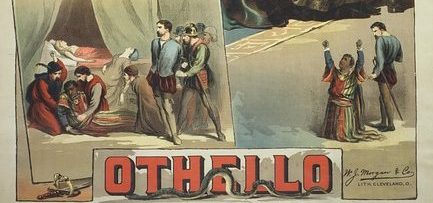Othello, the titular character of William Shakespeare’s play “Othello,” is a complex and multi-dimensional character. Othello’s character is a powerful exploration of the destructive forces of jealousy, insecurity, and manipulation. He embodies the complexities of human nature and the tragic consequences that can arise from unchecked emotions. Othello’s downfall serves as a cautionary tale about the destructive power of jealousy and the importance of self-awareness. Here is a character analysis of Othello:
Noble and Respected: Othello is a Moorish general in the Venetian army, and he is highly respected for his military prowess and leadership. He is described as noble, valiant, and honorable. Othello’s reputation precedes him, and his accomplishments on the battlefield earn him the admiration of his peers.
Tragic Hero: Othello is considered a tragic hero, a protagonist with noble qualities whose downfall is brought about by a tragic flaw. In Othello’s case, his tragic flaw is his vulnerability to jealousy and his inability to control his emotions. He is easily manipulated by Iago’s insinuations of Desdemona’s infidelity, which ultimately leads to his tragic demise.
Insecurity and Jealousy: Othello’s insecurities and deep-seated jealousy play a significant role in the play. Despite his success as a military leader, he feels like an outsider due to his race and cultural differences. This insecurity is exploited by Iago, who fuels Othello’s jealousy by planting seeds of doubt about Desdemona’s fidelity. Othello’s jealousy consumes him and drives him to commit heinous acts.
Love and Devotion: Othello’s love for Desdemona is intense and passionate. He marries her against societal expectations and cherishes her deeply. At the beginning of the play, Othello is portrayed as a loving and doting husband. However, his love turns into possessiveness and obsession as his jealousy takes hold.
Vulnerability to Manipulation: Othello’s trusting nature and his belief in the inherent goodness of people make him vulnerable to manipulation. Iago preys on Othello’s trust, exploiting his insecurities and planting seeds of doubt in his mind. Othello’s gullibility and inability to see through Iago’s schemes contribute to his tragic downfall.
Self-Doubt and Self-Destruction: Othello’s journey throughout the play is marked by self-doubt and self-destruction. He is torn between his love for Desdemona and the doubts Iago instills in his mind. Othello’s internal struggles, combined with the external pressures of societal expectations, lead him to make destructive choices and commit acts he deeply regrets.
Tragic Conflict: Othello’s tragic conflict lies in his inability to reconcile his love for Desdemona with his growing suspicion and jealousy. He is torn between his affection for his wife and his belief in her betrayal. This internal conflict intensifies as the play progresses, ultimately resulting in a tragic resolution.
Othello’s character is a profound exploration of the human psyche, particularly the destructive power of jealousy and the vulnerability of human nature. His tragic journey serves as a cautionary tale about the consequences of unchecked emotions and the dangers of succumbing to manipulation. Othello’s complexity and internal struggles make him a compelling and enduring character in literature.


